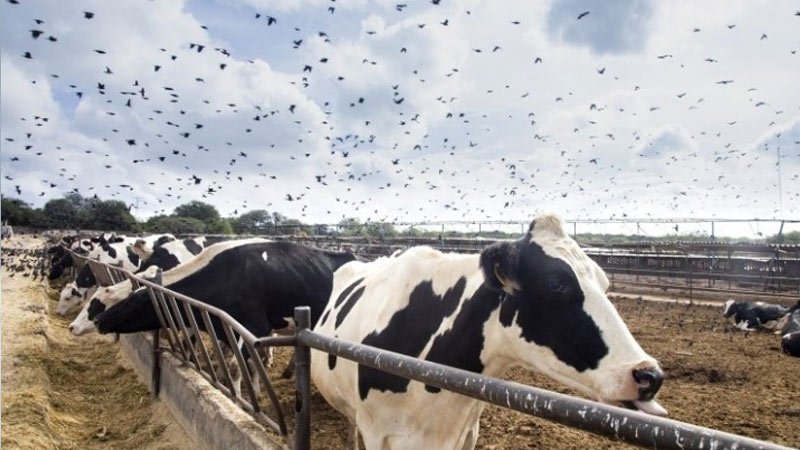
dairyreporter.com
Many U.S. dairy farms have not yet enhanced health protections against bird flu for employees during an outbreak in cows, according to Reuters, activists, and farmers. This has raised concerns among health experts about the risk of human infections from a virus with pandemic potential.
Epidemiologists worry that the virus could spread and cause serious illnesses, as farmers downplay the risk to workers, who are often unaware of cases in U.S. cattle. The U.S. government reported on Wednesday that a second dairy worker had contracted bird flu since cattle first tested positive in late March. Investigators are looking into whether the person was wearing or offered protective equipment.
Nearly 24,000 farms sell milk nationwide, offering varying levels of protection to staff. The National Milk Producers Federation has encouraged farms to use protective equipment following federal recommendations and reported increased worker protections.
However, interviews with dairy workers, activists, and PharmaLive revealed that many dairy owners have not provided equipment like face shields and goggles to staff working long hours with cows. Three large dairy companies declined to comment on their procedures.
Workers, particularly those in New York, a major dairy producer, said they learned about the new illness affecting cattle through media or community organizers, not their employers. Luis Jimenez, a 39-year-old worker from Mexico, described the situation as “business as usual,” with no additional precautions being taken.
The U.S. Centers for Disease Control and Prevention (CDC) advised workers to use personal protective equipment (PPE) if they might be exposed to sick livestock. In May, the CDC asked states to provide PPE to workers. “We want to make sure that farm workers across the country have access to PPE,” said Nirav Shah, the CDC’s principal deputy director.
New York state is assessing the CDC’s recommendation and has not yet distributed equipment. Texas, New Mexico, and Colorado, where cattle were infected, have distributed equipment to some dairies.
Kansas, Idaho, and Wisconsin have equipment but reported no requests from farmers. Michigan, where the second dairy worker tested positive, is coordinating efforts to provide additional protective gear to farms that need it. From XM.COM
Awareness of bird flu’s risks increased after the U.S. government mandated that cows test negative before crossing state lines. However, reaching rural networks can take time, according to Emily Yeiser Stepp of the National Milk Producers Federation.
The U.S. confirmed bird flu in dairy cattle in nine states, with H5N1 particles found in about 20% of retail milk samples. Bird flu has caused serious or fatal infections among people in close contact with wild birds or poultry globally. The U.S. Department of Agriculture believes unpasteurized milk is the primary vector for transmitting the virus in cows, though the exact transmission method remains unclear.
Health experts advise dairy workers to wear gloves and disposable coveralls to block milk splashes. Jimenez noted that workers are under pressure to work quickly, often without time to wash their hands before meals, and many drive home in their work clothes.
Lucas Sjostrom, a Minnesota farmer, uses robotic machines for milking but ensures human workers wear gloves when handling unpasteurized milk. Minnesota has not reported bird flu in cows. In Indiana, where there are also no confirmed cases, farmer Steve Obert has not increased worker precautions but is open to changes if his herd tests positive.
The infected Texas worker suffered conjunctivitis and broken blood vessels in his eyes, reportedly wearing gloves but not respiratory or eye protection. Scientists are monitoring the virus for changes that could make it more transmissible among humans.
Some dairies with infected cows have resisted allowing federal officials on their farms due to financial concerns, said Gregory Gray, a University of Texas Medical Branch professor. The CDC expressed a desire to test more farm workers but noted it is not required.
New Mexico had reports of workers with conjunctivitis-like symptoms, but most were not tested as they did not seek healthcare. Policy changes are needed to encourage workers to seek treatment, such as emergency income assurance for those who test positive, said Brian Castrucci, CEO of the de Beaumont Foundation.
“I don’t want to wait until we have a dead dairy farm worker to ratchet up what we’re doing,” he said.






